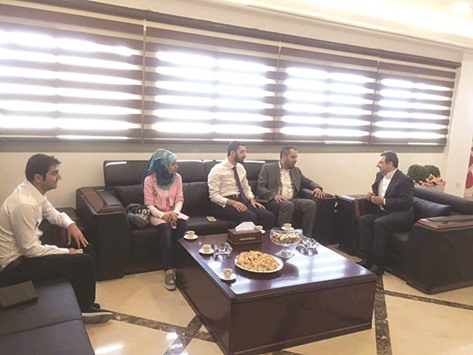Qatar Red Crescent Society (QRCS) has sought to pursue closer co-ordination with the authorities concerned in support of its efforts to help Syrian refugees in Lebanon.
In this connection, a team from the QRCS mission in Lebanon held a meeting with Wael Abu Faour, the Lebanese minister of health, recently.
The meeting focused on the realities and health problems faced by Syrian refugees, which posed challenges in providing services and utilities in the country. It also discussed ways of enhancing bilateral co-operation in support of public hospitals and health facilities, QRCS said in a statement.
In addition, the team presented an overview of QRCS’s medical and relief services for Syrian refugees and host local communities, including breast cancer early detection, primary healthcare, physiotherapy, premature baby incubators and several other projects across Lebanese districts.
Minister Abu Faour lauded the efforts made by QRCS and Qatar, saying: “We at the ministry of health are ready to offer all types of facilitation for the medical and relief activities of QRCS’s mission, with a view to alleviating the suffering of Syrian brothers.
“This can be done through bilateral agreements to provide hospitals with medical equipment and supplies, thus helping them offer their services for free.”
The “premature baby care” is a joint project of QRCS and its Kuwaiti counterpart under an agreement signed in March 2015. The 13-month project will take care of 400 newborns per year through four hospitals in Beqaa and Tripoli.
QRCS’s mission has completed the Ramadan Iftar project at Syrian and Palestinian refugee camps, distributing more than 5,000 meals per day, or 157,000 meals, throughout the
holy month.
Nearly 8,000 food packages had been given to meet the everyday needs of refugees.

The meeting focused on the realities and health problems faced by Syrian refugees.
